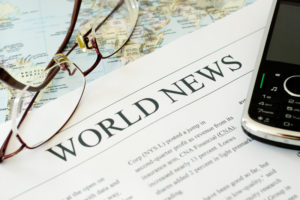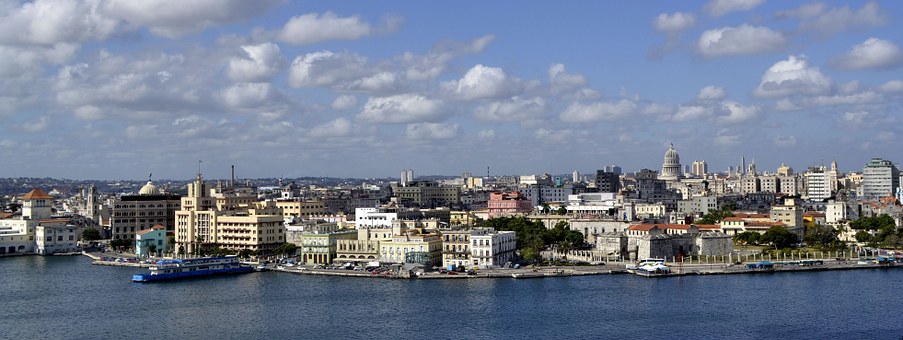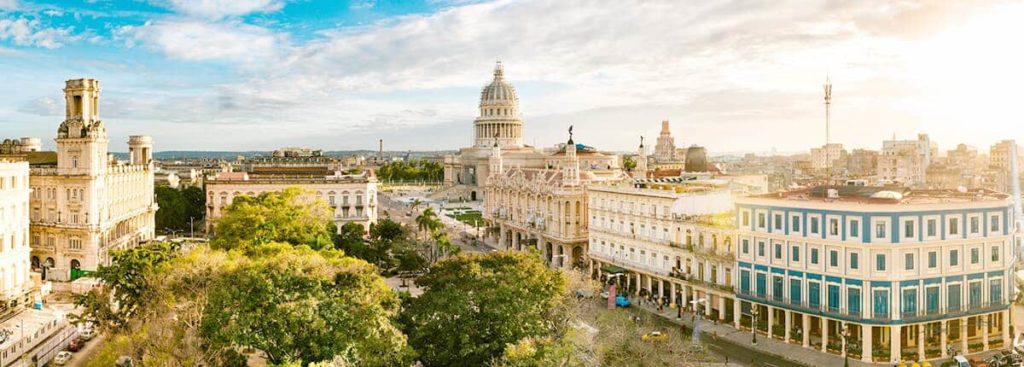![]() CALIFICA CUBA DE “CHANTAJE POLÍTICO” SOBRE POSIBILIDADES DE RECLAMACIONES DE PROPIEDADES CONFISCADAS EN CUBA.
CALIFICA CUBA DE “CHANTAJE POLÍTICO” SOBRE POSIBILIDADES DE RECLAMACIONES DE PROPIEDADES CONFISCADAS EN CUBA.
El ministro de Exteriores de Cuba, Bruno Rodríguez Parrilla, rechazó y calificó como un “chantaje político” el anuncio de su homólogo de EEUU, Mike Pompeo, sobre la posibilidad de reactivar por ley las reclamaciones de propiedades confiscadas tras la Revolución de 1959.
“Rechazo firme y categóricamente anuncio del Dpto de Estado EEUU de suspender por sólo 45 días aplicación Título III Ley Helms-Burton”, expresó el canciller en una publicación en la red social Twitter.
Además que el canciller cubano calificó esta situación en su tuit, como un “chantaje político y hostilidad irresponsables para endurecer bloqueo a #Cuba. Brutal ataque Derecho Internacional y a terceros Estados”. La réplica llegó unas dos horas después de que Pompeo anunciara una “revisión cuidadosa” del título III, en suspenso desde la promulgación de la Ley Helms-Burton de 1996.
Esta disposición legal especifica que los estadounidenses -incluidos cubanos nacionalizados-, pueden demandar ante la Justicia de EEUU a las compañías -incluidas extranjeras- que se beneficien de las propiedades que les fueron nacionalizadas por el Gobierno cubano tras la llegada al poder de Fidel Castro, hace seis décadas.
El título III de la Ley Helms-Burton, que endureció el embargo a la isla, ha sido suspendido periódicamente desde su creación en 1996 por todos los Gobiernos de los EEUU, desde el encabezado por el presidente demócrata Bill Clinton (1993-2001) hasta el actual, liderado por el republicano Donald Trump.
Un día antes de cumplirse el plazo para notificar al Congreso su decisión al respecto, Pompeo anunció que mantendrá la suspensión solo durante 45 días -en vez del periodo usual de 6 meses- para revisar el Título III teniendo en cuenta los “intereses nacionales” de EE.UU. y el comportamiento del Gobierno cubano.
El canciller de La Habana criticó a través de Twitter la “flagrante extraterritorialidad” de esta provisión legal, que provocaría “daños” a “intereses corporativos” de EEUU y “sometería arbitrariamente a empresas de terceros países” a los tribunales del país norteamericano.
Pompeo adelantó que para decidir si recupera o no el Título III, tendrá en cuenta los “esfuerzos” de EEUU “para acelerar la transición a la democracia en Cuba” y valorará “factores como la brutal opresión del régimen cubano a los derechos humanos y las libertades fundamentales”.
También examinará el “apoyo indefendible” que, a su juicio, Cuba ofrece a “los regímenes cada vez más autoritarios y corruptos en Venezuela y Nicaragua”. La decisión de Pompeo generó alarma en el Consejo Comercial y Económico EEUU-Cuba, que reúne a compañías estadounidenses interesadas en aumentar el comercio con la isla, puesto que la activación del Título III podría afectar al intercambio comercial.
 CUBA CALLS “POLITICAL BLACKMAIL” ON POSSIBILITIES OF CLAIMS OF PROPERTY CONFISCATED IN CUBA.
CUBA CALLS “POLITICAL BLACKMAIL” ON POSSIBILITIES OF CLAIMS OF PROPERTY CONFISCATED IN CUBA.
Cuba’s foreign minister, Bruno Rodríguez Parrilla, rejected and described as “political blackmail” the announcement of his US counterpart, Mike Pompeo, about the possibility of reactivating by law the property claims confiscated after the 1959 Revolution.
“I firmly and categorically reject the announcement by the US Department of State to suspend for only 45 days the application of Title III Helms-Burton Law,” the foreign minister said in a publication on the social network Twitter.
In addition, the Cuban foreign minister described this situation in his tweet, as an “irresponsible political blackmail and hostility to tighten the blockade of #Cuba, brutal attack on International Law and third States.” The reply came about two hours after Pompeo announced a “careful review” of Title III, suspended since the enactment of the 1996 Helms-Burton Act.
This legal provision specifies that the Americans -including nationalized Cubans-, can sue before the US Justice the companies -including foreigners- that benefit from the properties that were nationalized by the Cuban Government after the coming to power of Fidel Castro, six decades ago
Title III of the Helms-Burton Act, which hardened the embargo on the island, has been suspended periodically since its creation in 1996 by all the governments of the United States, from that led by Democratic President Bill Clinton (1993-2001) to the current one, led by Republican Donald Trump.
One day before the deadline to notify Congress of its decision on the matter, Pompeo announced that it will maintain the suspension only for 45 days – instead of the usual period of 6 months – to review Title III taking into account the “national interests” of USA and the behavior of the Cuban Government.
The chancellor of Havana criticized through Twitter the “flagrant extraterritoriality” of this legal provision, which would cause “damage” to “corporate interests” of the US and “arbitrarily subject companies from third countries” to the courts of the North American country.
Pompeo said that to decide whether or not to regain Title III, he will take into account the “efforts” of the US “to accelerate the transition to democracy in Cuba” and assess “factors such as the Cuban regime’s brutal oppression of human rights and fundamental liberties”.
He will also examine the “indefensible support” that, in his opinion, Cuba offers to “the increasingly authoritarian and corrupt regimes in Venezuela and Nicaragua.” Pompeo’s decision raised alarm in the US-Cuba Economic and Trade Council, which brings together US companies interested in increasing trade with the island, since the activation of Title III could affect trade.
Agencies/ El Periodico, Spain/ Reuters/ Internet Photos/ Arnoldo Varona/ www.TheCubanHistory.com
THE CUBAN HISTORY, HOLLYWOOD.







